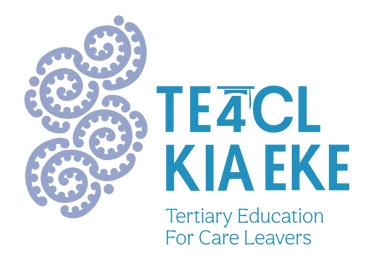Resources for Tertiary Education Institutions


Are you a tertiary institution looking at how you can support care leavers to access and flourish within tertiary education?
Take a look at this guide from the Tertiary Education Commission, which is a helpful starting point.
If you want to go beyond this, get in touch with us to find out how our own recommendations may apply to your setting.
Below are some practical steps >>>
1.
Challenge your learner assumptions
An important first step is to understand the diverse lived experience which your current and prospective students possess - including care experienced.
2.
Update core planning documents
Consider a broader student population in core planning documents such as pastoral codes of conduct and disability plans.
3.
Collect data
An optional tickbox on application forms for students to self-identify as care experienced offers an opportunity for TEO’s to a) support care experienced learners through their education and b) to collect robust data on the breadth and need of care experienced learners in order to more fully support their success at university.
4.
Encourage Professional Development
Learn about the impacts that care experience can have on an individual’s life and learning journey. Check out the Research Centre for Better Outcomes from Fostering and Residential Care.
5.
Provide dedicated information for care leavers on your website
It is important that a prospective student can see themselves welcomed at a tertiary institution. A page on your website that illustrates how your institution acknowledges and welcomes applications from care experienced people can go a long way in this. It also helps break down the general stigma about care experienced people and their potential.
6.
Sync in Student Support
Care experience is an indicator that a student may need additional tailored, and culturally appropriate support. For example, they may need support to access documents such as birth certificates or school records. They may also need financial support to cover course fees and materials, options for affordable accommodation or access to counselling.
7.
Scholarships
Consider adding care experience as a consideration to qualify for student scholarships. This directly illustrates that care experienced learners are welcomed and supported by your institution.
8.
Profile Care-Experienced Alumni
Ensure care experienced students are reflected in alumni profiles on your website and other promotional materials and outreach.


